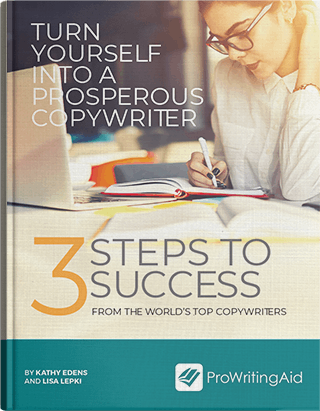
Happy Friday, writer friends! I’ve been horrified to note that some of us here at The Wording HQ (I won’t say who) have read fewer than a dozen books so far this year.
I’ll be rectifying this travesty over the weekend by finding a comfortable spot on the beach, arming myself with cocktails, and putting in the work of reading those novels. (Someone’s got to do it.)
It’s a bank holiday on Monday so we’ll be back in your Inbox on Tuesday for our regularly scheduled programming.
Enjoy the issue!
Natasha Khullar Relph
NEWS & VIEWS
Publishing has a creep problem
Conference and festival season is in full swing and with that comes talk of some of the shady behaviour that takes place at some of these events.
In March, admins of the 20Books conferences noted that female attendees had brought to their attention inappropriate behavior and advances toward them. They made it clear that anyone causing guests any consternation would be removed immediately, without warning. They also noted that 20Books would be placing a group of vetted “champions” at all events as the first step towards putting safeguards in place.
Indie publishing can no longer pretend it doesn’t have the same problems as traditional publishing of well-known authors abusing their power and privilege to harass colleagues. “Would you be shocked to hear that groping is a common occurrence at our in-person events?” H. Claire Taylor, author of over 30 books and founder of FFS Media, writes. “And almost always perpetrated by ‘respectable’ industry men, the ones who like to publicly present themselves as the protectors, the watchdogs.”
Sexual harassment and hypocrisy in traditional publishing is nothing new, of course. One publicist told the Bookseller: On multiple occasions I have been warned about notoriously lecherous male authors, journalists [or] senior publishing staff at launch events, meetings or parties, and told that their constant rudeness, patronising and predatory behaviour is “just part of the job.”
The surveys on the subject all seem to be a few years old. Perhaps new data will show an improvement in conditions.
We’re not holding our breath.
SEE ALSO:
A room of their own: This is the sort of behind-the-scenes we love at The Wordling. A glimpse into the writing spaces of five women writers. With pictures.
Getting reviews for your book: Here’s an excellent list from writer Kathy Widenhouse on how to get reviews for your book (at no cost). And one big “how not to” as well.
Free event: ProWritingAid is once again running Crime Writer’s Week, a free annual event that includes interviews with bestselling authors, trainings, workshops, and Q&As specifically curated for crime writers. Running June 20-23.
WRITERS WANTED
Have pitches that are travel or adventure themed? Send them to the publications below.
- Afar (Pay starts at $0.50 a word)
- Caribbean Beat (Pay unspecified)
- Explore, Canada (Pay unspecified)
- France Revisited (Pays $50)
- Transitions Abroad (Pays up to $150)
- Verge (Pay unspecified)
- Wanderlust, UK (Pays £220 per 1,000 words)
There are now 50+ publications on our How to Pitch page and we’re adding more weekly.
THE WORDLING INTERVIEW

This section will return next week. In the meantime, if you know a writer, editor, agent or media professional that we should feature, hit reply and let us know!
THE WORDLING PICK
Turn Yourself into a Prosperous Copywriter* breaks down the three essential steps you must take if you think copywriting is the career for you:
* Develop Your Skills
* Create Content that Resonates
* Build Your Profile (and Pay Your Bills)
*This is a sponsored post.

THE WORDLING INSIGHT
Look at all the people you’re following, admire, and can’t get enough of. The authors, the entrepreneurs, the people who’ve achieved what you hope to someday achieve. What’s a trait they share? What’s common to all of them? What makes you repeatedly look to them for inspiration and motivation?
Want to know a secret? This trait that you’ve found that you so admire in these mentors of yours?
You have it, too.
(It’s what attracts you to them.)
GLOBAL REPORT
NIGERIA: Witnessing how little women’s contributions to society were acknowledged or celebrated is what led Nigerian journalist Kiki Mordi to launch Document Women, a media initiative that “equips reader with the knowledge they need to advocate for gender equality.” The website highlights stories that aren’t typically covered by mainstream media, such as the realities of female genital mutilation and what Christmas is like for Arewa Christian women.
UKRAINE: A tool that is changing the way journalists get access to sources during wartime, UABRAVE maintains a secure database of both sources and journalists, each vetted but with the sources kept anonymous to provide security. Here’s how it works: The reporter is given access to tweet-sized summaries of sources—their name, location, and what kind of actions they’re taking. The reporter selects the identification number of the source and the contact information is released via a secure message. If the legitimacy of a reporter can’t be verified, they won’t be given access.
INDONESIA: KamiBijak is the first sign language media outlet in Indonesia. The outlet, which was founded in 2018 by Paulus Ganesha Aryo Prakoso, caters to people with disabilities, especially those with hearing impairments. “Our hope is that KamiBijak will not only be a source of information, but also an encouragement for people with disabilities to continue working,” Prakoso says.
QUOTE OF THE DAY
“I love my rejection slips. They show me I try.” — Sylvia Plath
SHARE THE WORDLING
We’ve been oscillating between extreme productivity and extreme laziness at The Wordling HQ. Share The Wordling with a writer who doesn’t understand the meaning of the word “balance.”
or
Support us by buying us a coffee.
